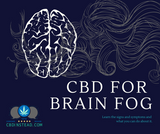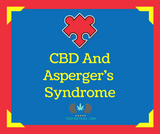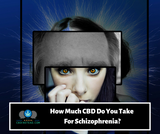If you’ve ever gotten in contact with poison ivy, you know just how miserable this skin rash can be. Only recently did scientists discover why this dubious plant makes us itch so much as well as whether or not cannabinoids can help with the condition.

What Is CBD?
Cannabidiol (CBD) is a chemical that comes from the cannabis plant that has a long list of healing benefits, including those related to inflammation. Unlike the chemical THC in cannabis, CBD doesn’t get the user high. CBD interacts with the endocannabinoid system indirectly by elevating endocannabinoids, which are chemicals that are synthesized by proteins in our body.
One of the endocannabinoids that CBD enhances is the chemical 2-ag. This endocannabinoid binds to the cannabinoid receptor CB2 which helps to mediate the immune system. The 2-ag endocannabinoid can help reduce the activity of an overactive immune system that causes the itching in poison ivy rashes.

Why Does Poison Ivy Make Us Itch?
The reason poison ivy makes us itch is because of a molecule called CD1a. For a long time, researchers had no idea why this molecule was behind it, but thanks to genetic engineering they cracked the code.
Cells make up your skin, and some of the cells participate in the response from the immune system. When your skin encounters poison ivy, the CD1a molecule is produced by the immune cells in your skin, Langerhans cells. The molecule activates the immune system’s T cells that produce inflammatory cytokines. This causes the itchiness and inflammation upon contact with poison ivy.

How Can CBD Help?
CBD helps regulate the production of cytokines which is why it is such a useful anti-inflammatory. When it enhances the endocannabinoid 2-ag, the endocannabinoid binds to the CB2 receptor helping to mediate the immune functions. When the immune system is overactive, the 2-ag helps reduce the activity. Using a CBD topical straight on the rash can have you feeling relief quickly to make the experience a lot less miserable.













